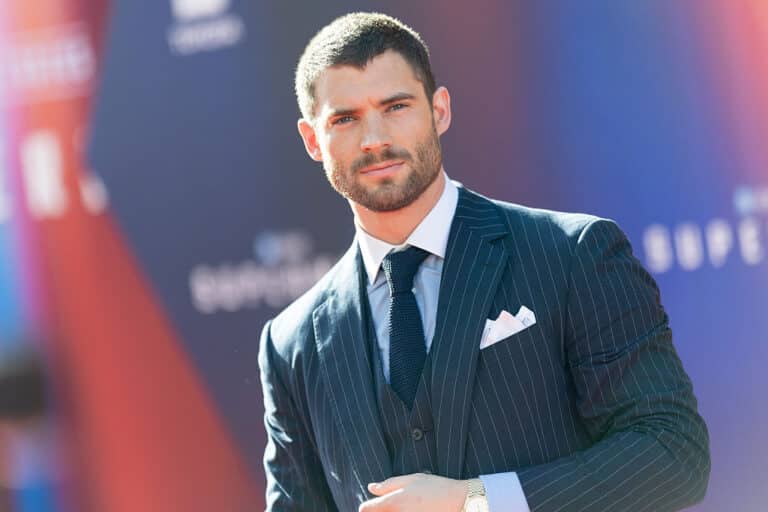
Superman has always had Jewish roots, but now, for the first time, he’s being played by someone who does too.
David Corenswet, the actor stepping into the cape in the highly anticipated “Superman,” is the first Jewish actor to take on the role in a major film. For a character created in 1938 by two Jewish teens from Cleveland, this casting feels like a full-circle moment — one that highlights the deep (and often overlooked) Jewish DNA of America’s most iconic superhero.
In theaters this Friday, “Superman” kicks off a new era for the DC Universe — with James Gunn at the helm and Jewish producer Peter Safran behind the scenes.
Corenswet, 31, suits up as Clark Kent, starring opposite “Marvelous Mrs. Maisel’”s Rachel Brosnahan as Lois Lane and Jewish actor Skyler Gisondo as Jimmy Olsen. It’s a fresh take on the franchise, but one that nods to its origins: Superman was dreamed up by Jewish teens Jerry Siegel and Joe Shuster in the 1930s, just as antisemitism was rising in Europe. For a character rooted in Jewish themes of exile, identity, and justice, this casting hits home.
Before you hit the theaters, here’s everything we know about David Corenswet’s Jewish identity and the Jewish origins of Superman.
The basics
Born July 8, 1993, in Philadelphia, David Corenswet is a patrilineal Jew with deep roots in American Jewish history.
His father, John Corenswet, was a stage actor in New York before becoming a lawyer, and came from a New Orleans–based Jewish family with ties to Louisiana dating back to the 1860s. The Corenswets were largely of German Jewish descent, with additional Russian, Polish, and French ancestry. David’s great-grandfather, Sam Corenswet, immigrated from Russia and became a leader at Temple Sinai, Louisiana’s oldest Reform synagogue, a legacy continued by David’s grandfather, Sam Jr. Many members of Corenswet’s family remain involved in Temple Sinai to this day.
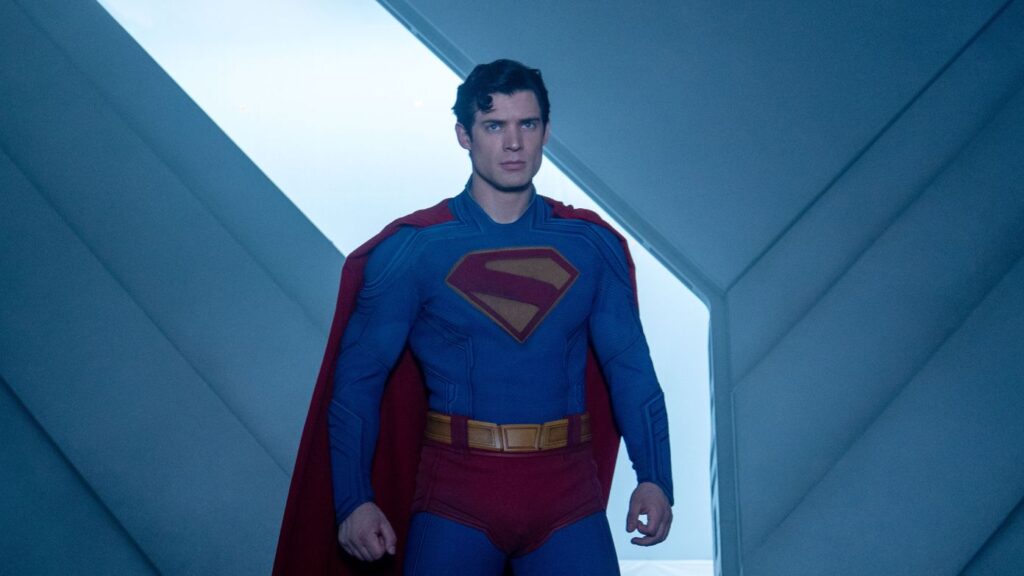
Before donning the cape, David Corenswet was carving out a career in Hollywood.
He started acting at age 9 in a local production of All My Sons, then studied at the University of Pennsylvania for a year before transferring to Juilliard, where he graduated in 2016. His breakout came with the political thriller “Affairs of State” (2018), followed by appearances in “House of Cards,” “Elementary,“ and “Instinct.” He’s since carved out a steady career with standout roles in Ryan Murphy’s “The Politician” and “Hollywood” on Netflix, HBO’s “We Own This City,” and this year’s “The Greatest Hits” and “Twisters.” Plus, he starred opposite Natalie Portman in Apple TV+’s Jewish murder mystery “Lady in the Lake.”
What do we know about David Corenswet’s Jewish identity?
The relationship between the Corenswet family and Temple Sinai remain strong. Edward Cohn, a rabbi at the synagogue close to the family, said that those in the community are excited for his latest role.
“It’s not the biggest issue in anyone’s life, but we’re very gratified that we’re going to have a Jewish Superman,” Cohn told the Jewish Telegraphic Agency.
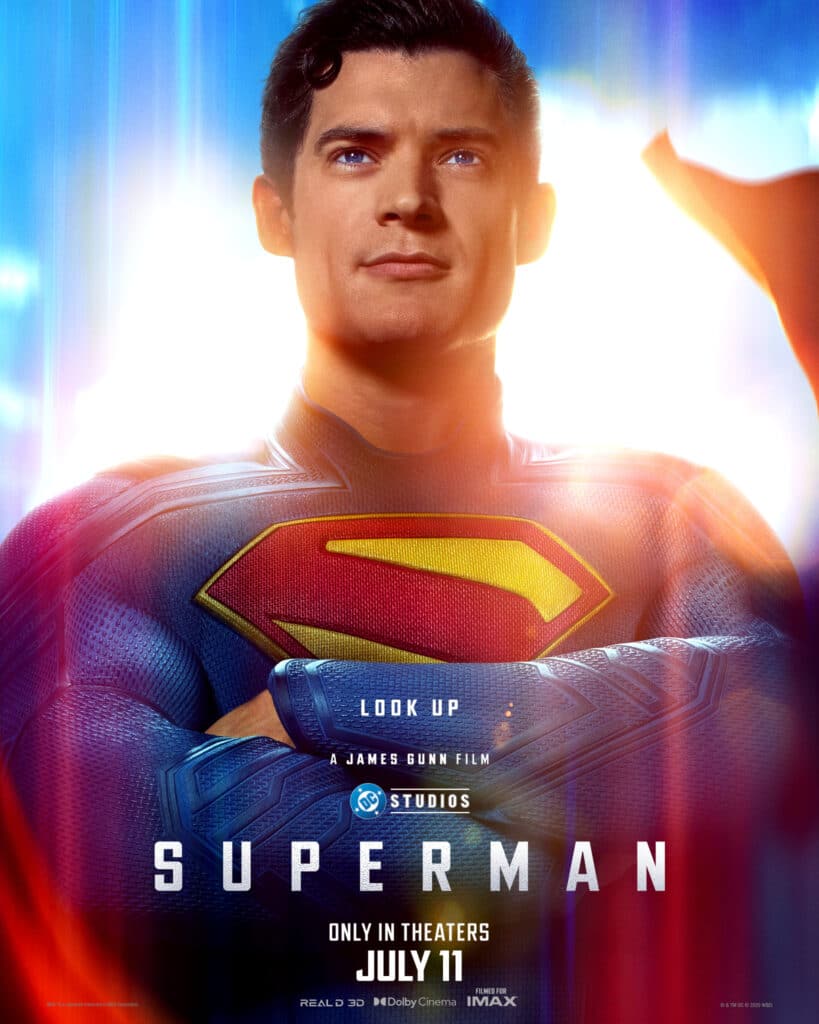
Corenswet’s Jewish identity was featured in his 2023 wedding to fellow actress Julia Best Warner. The couple had an interfaith ceremony officiated by Cohn and a Catholic priest, honoring both of their faiths. Corenswet took part in the Jewish tradition of breaking the glass at the ceremony, which included a chuppah.
While he has not publicly spoken about his Jewish identity, Cohn said that it is an important part of the “Superman” actor’s private life. While they don’t regularly attend synagogue, the rabbi also suggested that the couple is “intending to affiliate with a congregation” in Philadelphia.
When asked about how it feels to be the first Jewish actor to portray the legendary superhero by German magazine Geek! Corenswet discussed how he met with Jerry Sigel’s grandchildren and visited the Cleveland home where he lived and wrote the first Superman comic.
“It’s old and small, the ceilings are low, but it radiated this warmth,” he said in the interview. “That basement reminded me of my best friend’s basement.”
In 2020, Corenswet was a featured speaker at a Zoom event organized by Jewish Pride New Orleans.
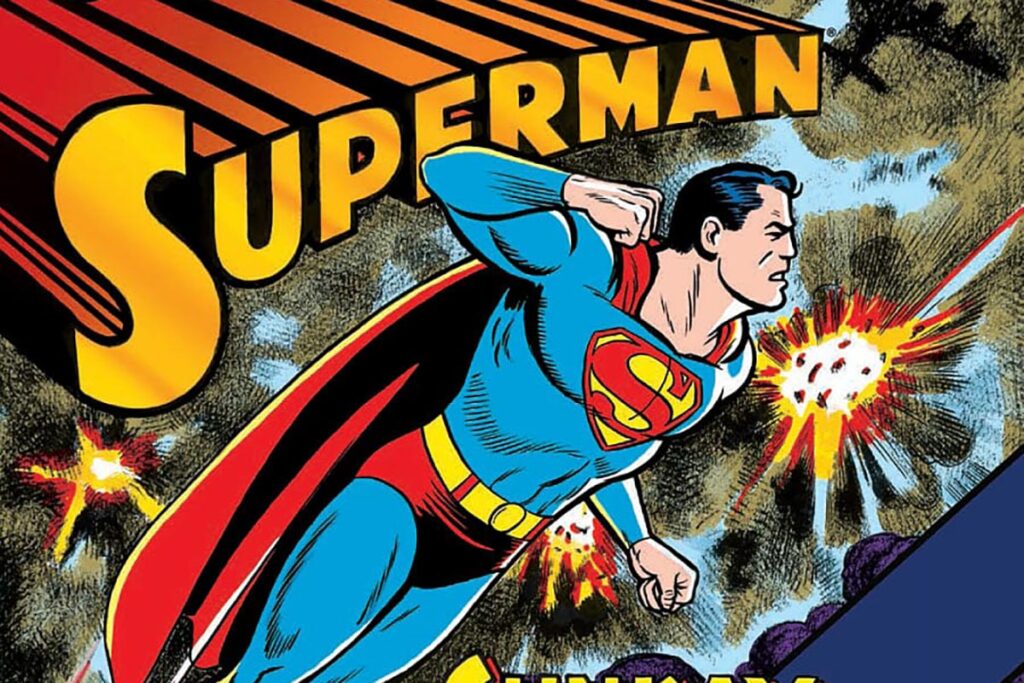
Superman’s Jewish identity
Superman may be the ultimate American icon, but he was born from Jewish imagination. Created in 1938 by writer Jerry Siegel and artist Joe Shuster — both the sons of Jewish immigrants — the Man of Steel has long been read as a metaphor for the outsider made good: a stranger from another world who finds a home in America and devotes his life to justice.
Yet in nearly nine decades of capes, tights, and screen reboots, not one official live-action Superman has been played by a Jewish actor until now. From George Reeves and Christopher Reeve to Dean Cain, Tom Welling, Brandon Routh, Henry Cavill, and Tyler Hoechlin, none share the character’s Jewish roots.
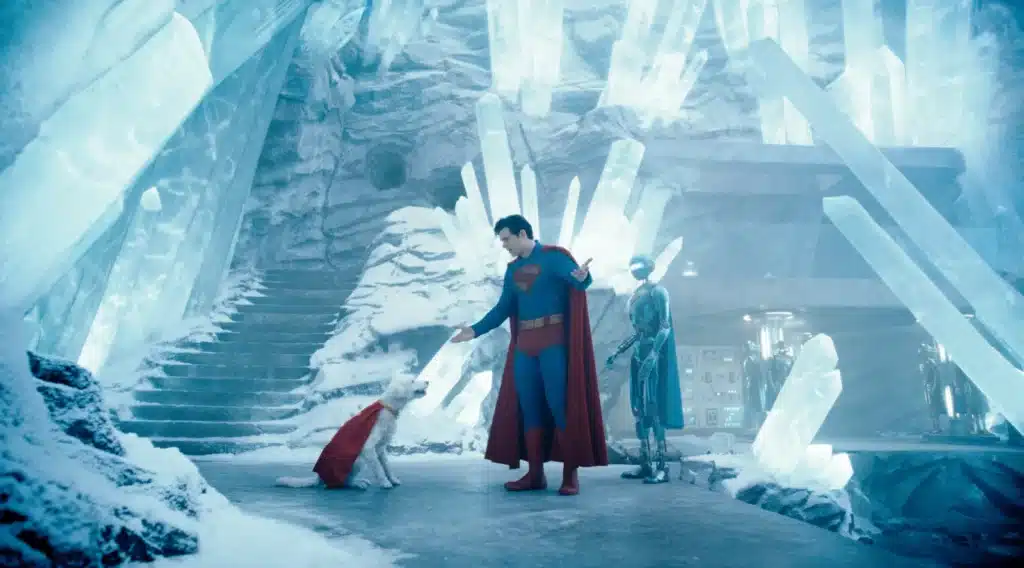
Roy Schwartz, the author of “Is Superman Circumcised?: The Complete Jewish History of the World’s Greatest Hero” told the Baltimore Jewish Times that Clark Kent, Superman’s “nebbish alter-ego” is a stand-in for Shuster and Siegel and other Jewish stereotypes of the time. His ability to lose those characteristics and be Superman is supposed to emulate assimilation and anglicization.
“Superman is basically a kindertransport refugee who comes over from the old world, anglicizes his name and integrates into society because he looks enough like everyone else. He’s a Jew passing for a gentile, the ultimate assimilation/assertion fantasy,” Schwartz said. “Superman is a Jewish creation, inspired by Jewish legend, and is a metaphor for the Jewish experience. Over the years, his mythology has grown and changed, incorporating many Christ parallels, but his DNA remains Jewish. Corenswet being Jewish too is a nice homecoming of sorts. More importantly, Corenswet is a good actor who radiates warmth, and by all accounts a real Super-mensch.”
Superman was conceived as a refugee with the Hebrew-inspired name ‘Kal-El’ who escaped a dying world and fought Nazis during World War II. Schwartz’s book argues that Superman’s origin story is based on Moses, his strength on Samson and his mission on the golem.
Jewish creatives built the comics industry
The comic book industry was dominated by Jewish immigrants and the children of immigrants. These creators brought their experiences and values to the stories they told. From the way their religion influenced the morals and ideals in the stories, to the backgrounds and personalities of the heroes themselves.
“Superman was a personal avatar for Jewish creators Jerry Siegel and Joe Shuster,” explained Schwartz.
“It was their reaction to the rise of Nazis in Europe and to antisemitism domestically,” he noted. “In many ways, Superman’s famous ‘S’ shield was a simple, powerful symbol used as a counter argument to the swastika.”
Superman’s origin story reflects the Jewish immigrant experience, Schwartz said.
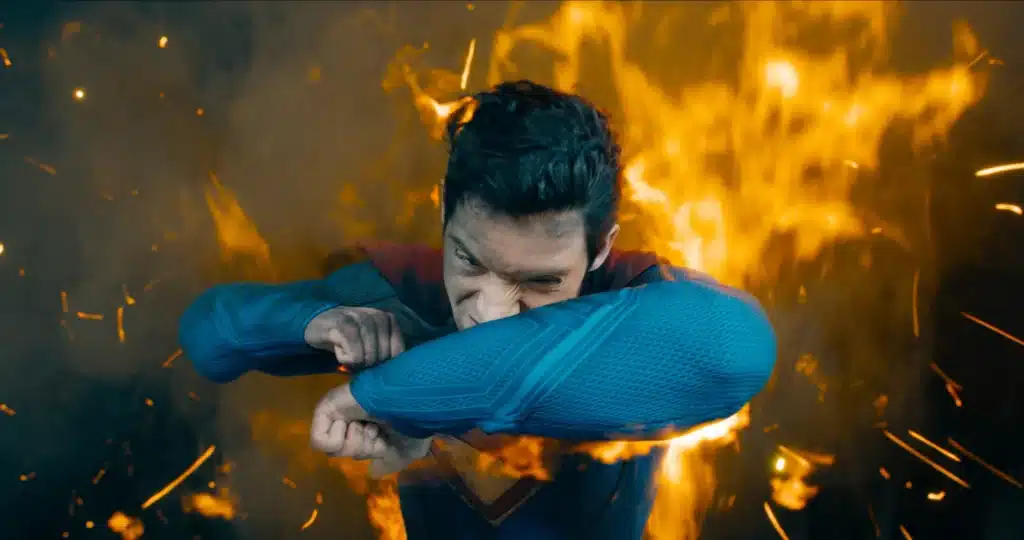
“It’s a story about an immigrant born with the Hebraic name ‘Kal El’ who comes from the old country, changes his name to the uber waspy Clark Kent and hides his cape like a tallit in his pants,” he said.
“He decides at any given moment which side of himself — not just personal but also ethnic and racial — to share with the world. He can decide whether he shows it or not. That’s the Jewish immigrants experience in a nutshell”
Exploring Superman’s background serves as real insight into the mentality of his Jewish immigrant creators. The duality narrative mirrors the tensions that existed for Jewish immigrants forming new identities in America.
“Superman is an all American icon, but he’s a Jewish American icon, and he also reminds us that being an immigrant is all American,” said Schwartz.
Comics as a Jewish-American artform
Schwartz believes comics should be treated as real artifacts that contribute to the tapestry of American (and Jewish) history.
“Superman is the most popular superhero and the one most associated as an American icon, so when I argue that Superman is a Jewish character,” Schwartz explained. “It’s not an argument of ownership or some sort of bragging rights. It’s to note contribution.”
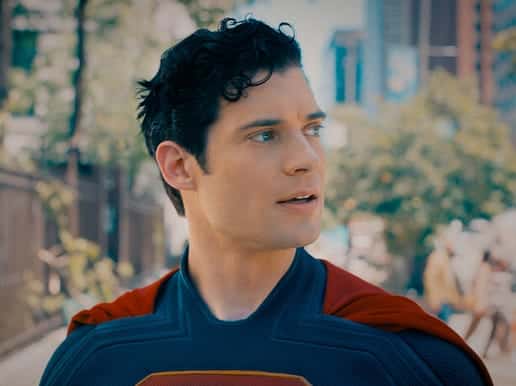
Fundamentally, understanding Superman’s Jewishness is meant to enrich the character, not to add labels or make ‘claims.’ If it bothers some people, he’s okay with that.
“Some people have taken offense and in a very understandable way, people feel ownership over this guy. I don’t take offense to their offense,” he told me with a smile. “At the end of the day, this is not important in any way to enjoy his adventures, but it enriches the background and enriches the social historical context.”
Think of it like music, he suggested.
“You don’t need to care about or know much about the Black American experience in early 20th century America to enjoy jazz. But if you really love jazz, understanding the context in which it came to be will enrich your experience and appreciation of it.”
“That’s really what this book is about. It’s to really look at the tapestry,” he said.

Comics should be regarded as documents with historical and cultural significance and taken just as seriously as other written works, he added.
“In many cases when you really look at these comics you discover significantly more intelligence and weight than you would think, even though they were aimed at children and borderline illiterate immigrants,” he said.
Schwartz can attest to the wisdom within comics, he’s spent years sifting through them. As part of his book research, he read every superman comic written since 1938, watched all the shows, movies and listened to all the radio series, he told me.
“The reason why Superman being Jewish is important is that it really puts comic books in their rightful place, which is on the same shelf as Philip Roth and Bernard Malamud, and Primo Levi… This is Jewish American literature.”
“Superman owes his origins to Jewish culture,” Schwartz proclaimed. “Not exclusively, but in many ways significantly.”

Without Jews, Superman wouldn’t be Superman.
“I tried to be very responsible in my book, distinguishing between what is factually known and supported, what is obvious, what is likely, what is possible, what is a stretch but still worth including, and what is just being playful,” said Schwartz.
Though Judaism and Jewish culture do not define the character, it still matters.
“It’s not that serious at the end of the day,” Schwartz said. “But it is adding a wonderful layer to a wonderful mythology that is part of Americana. And hopefully, in some way, I added a layer of thought to that too.”
He hopes his book will encourage Jews and non-Jews alike to embrace Superman’s Jewish history.
“I always connected to him as somewhat of a personal blueprint of morality and behavior, little realizing how much of my own Jewish background this drew upon,” Schwartz said.
“The metaphor at the core of Superman is that we all have this secret super self that is super capable and confident – and that’s a fantasy anybody can relate to.”
